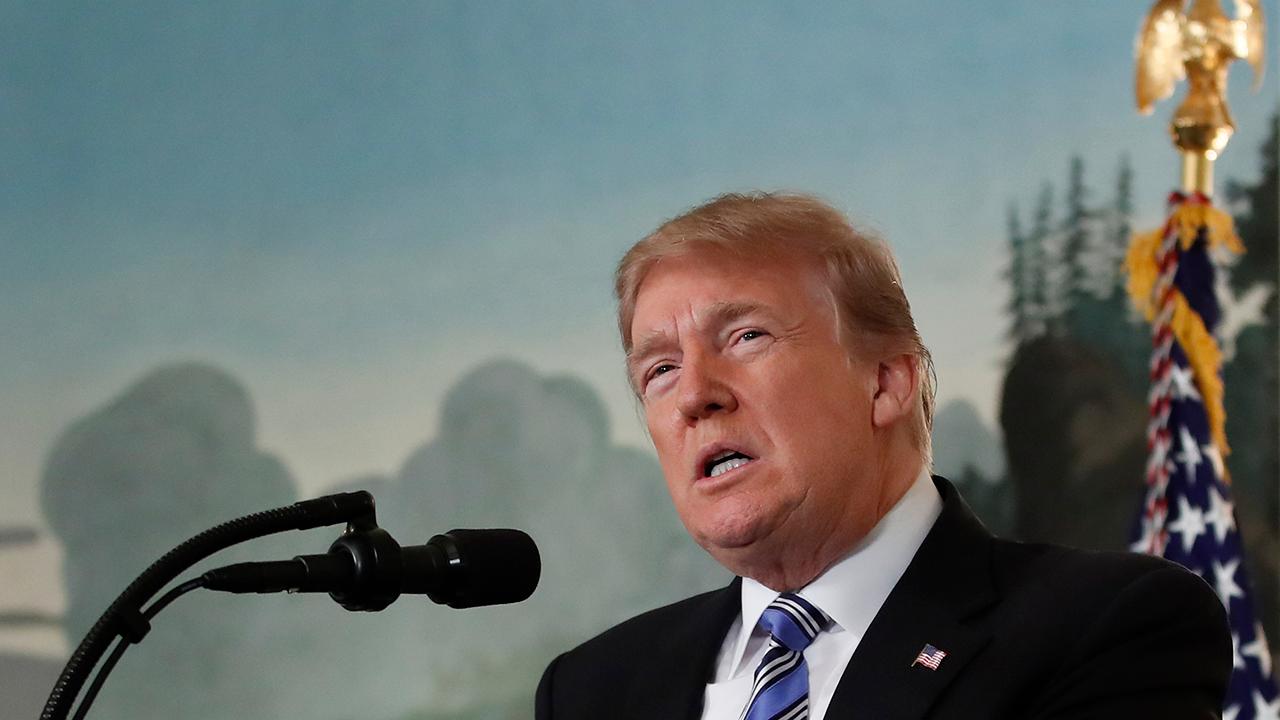Wilbur Ross: US would eliminate tariffs if other countries did too
Commerce Secretary Wilbur Ross dismissed concern over a potential trade war between President Trump and the European Union, which threatened on Friday to slap import duties on blue jeans, motorcycles and whiskey after the White House announced plans to impose steel and aluminum tariffs.
Ross cited a stringent World Trade Organization (WTO) procedure the European bloc would have to go through in order to retaliate, which includes proving that the U.S. tariffs were not an appropriate remedy. Like most free trade agreements, the WTO carves out a section for national security. Under U.S. law, the president can start an investigation to determine whether U.S. security is threatened by imports.
“What we need is reciprocity,” Ross told FOX Business’ Liz Claman on Wednesday. “We would be willing, in principle, to get rid of all our tariffs if everyone else did. They won’t do that because they talk free trade and they are really highly protectionist.”
Trump announced the tariffs – 25% on steel and 10% on aluminum – arguing they would protect U.S. companies and allow for the creation of new manufacturing plants, one of his main promises during the 2016 presidential campaign.
Since then, Ross and Peter Navarro, a senior White House adviser on trade, have been making the rounds on the media circuit to sell the plan as pro-jobs and pro-America.
Ross pointed to the EU tax on American cars – 10% – and the U.S. levy on European cars – 2.5% – as signs of a fundamentally unequal system. During the White House press briefing, press secretary Sarah Sanders, the daughter of Fox News contributor Mike Huckabee, also pointed to the $56.6 billion trade deficit in the U.S., a more than nine-year high.
“The tariffs haven’t been working for the U.S. for quite a while,” Ross said. “They’ve been working very well for Europe, for Japan and for China because they are much more protectionist than we are.”
But not all Republicans were on board. Speaker Paul Ryan has been vocal in his criticism of the tariffs, which he urged should be more “surgical” to avoid retaliation from U.S. allies.
And Gary Cohn, the director of the National Economic Council, resigned Tuesday night after the president refused to reverse course on the tariffs, despite pressure from Cohn -- who was leading Republican opposition to the import tax -- to do so.
“This is not a battle between Gary and me,” Ross, a tariff proponent, said. “Gary was a valued member of the administration. He did good work on the tax legislation, he was doing good work on infrastructure. This is a fight against evildoers in other countries.”
No specific timetable was given, but the president is expected to sign the order, which is still being drafted, sometime this week.




















